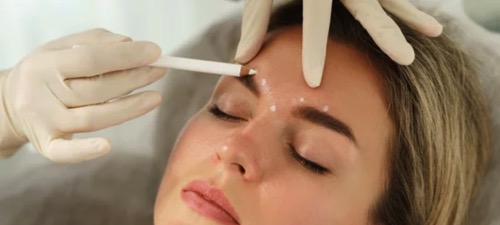Dermal Filler

What are Dermal Fillers?
Dermal fillers offer many benefits for those who are looking to enhance their facial features or reduce the appearance of wrinkles and fine lines.
Dermal fillers can be used for a variety of aesthetic concerns. From fine lines to restoring lost volume or correcting deficiencies, there is a dermal filler product specially designed for it.
Why are there so many fillers options?
How does the practitioner choose the right filler for me?
What should you look for when choosing someone to inject filler?
At present, there is very little regulation to protect consumers. Filler products are manufactured by leading global pharmaceutical companies as well as a high number of companies with limited or no scientific or medical background. It is important therefore to find a clinic that uses only leading products from companies should be used.
Importantly, access to leading products is not restricted to medical practitioners, and although a clinic may offer the best possible products the person injecting the product might not have any medical training.
At Aesthetics by Newgate St Clinic our practitioner is a fully insured and Registered Nurse and we have in place extensive training and safety protocols.
Please be aware that claims made by clinics on their website are rarely verified by any authority and it is up to you to ensure you do appropriate research.
How do dermal fillers work?
Are dermal fillers right for me?
How long does the treatment take?
What does having dermal fillers feel like?
How many sessions will I need?
Dermal filler treatment can be completed in one sitting. However, for those seeking more of a transformational result it is recommended the treatment is completed over a number of sessions to ensure the best possible outcomes are achieved.
What do I need to do before a treatment with dermal fillers?
Prior Dermal fillers we advise that patients should do the following:
- Avoid wearing make-up/ fake tan to your appointment
- Avoid excessive sun exposure for four weeks prior to treatment
- Avoid using Retinol and active creams 48hrs prior to treatment
- Avoid abrasive treatments such as laser, waxing and chemical peels 2 weeks prior to treatment
Are dermal fillers safe?
Yes, dermal fillers are extremely safe when performed by a qualified and registered medical professional with strong knowledge of facial anatomy. At Aesthetics by Newgate St Clinic you will be treated by Ms. Sarah Buttery who is very well regarded and you can read all about her on her Bio Page.
Is there any downtime?
Are there any side effects?
When can I expect to see results?
What aftercare is advised?
Usually you can return to your normal activities immediately after Dermal fillers, however the following is advised to minimise the risk of side effects:
- Avoid significant movement, massage, or compression of the treated area for a minimum of 48 hours
- Avoid sun exposure and excessive heat for one week
- Avoid strenuous exercise for 24 hours
- Avoid consuming alcohol for 24 hours
- Avoid blood thinning medication (Aspirin, ibuprofen) for 48 hours post treatment
